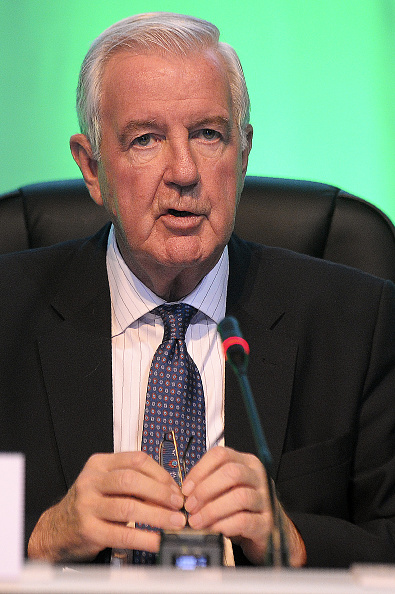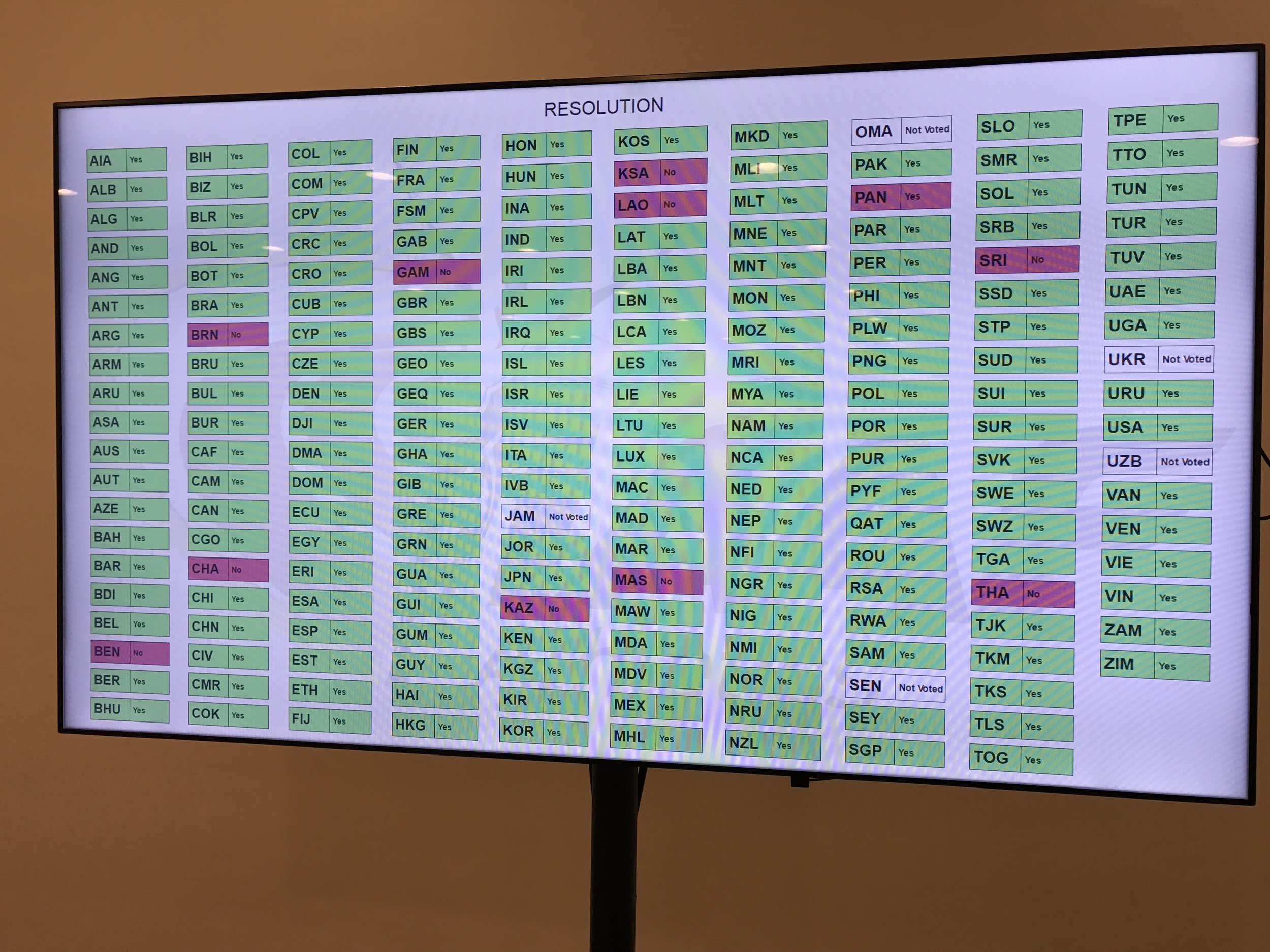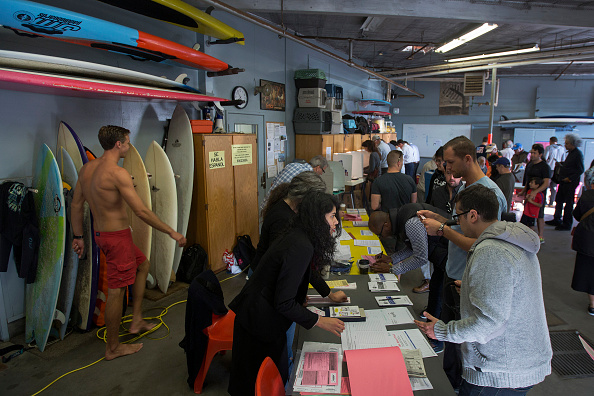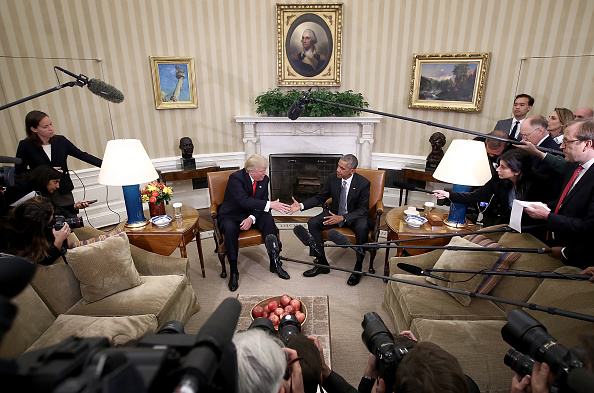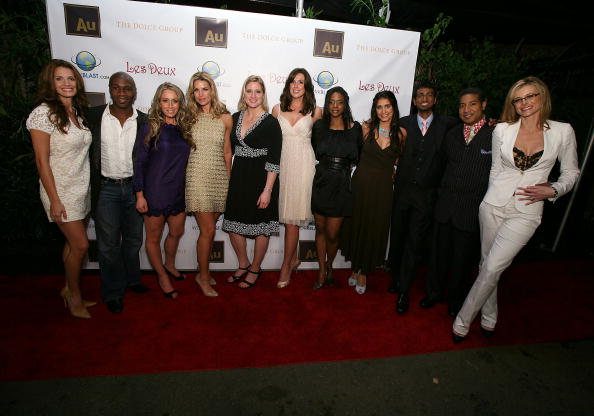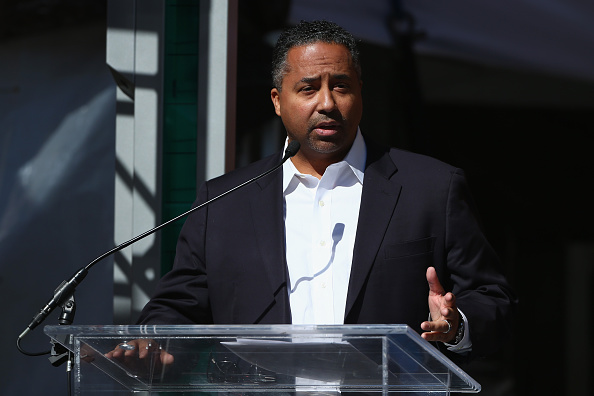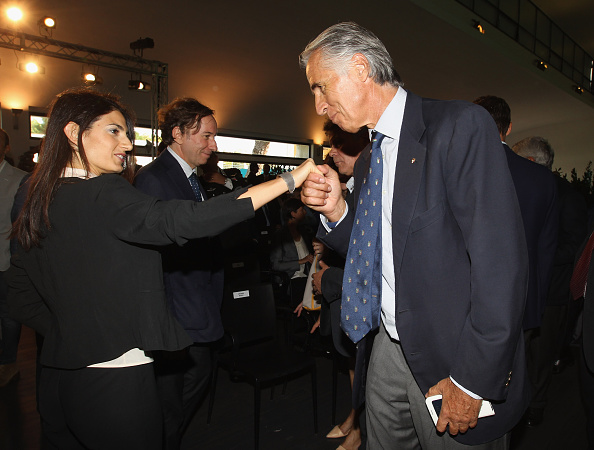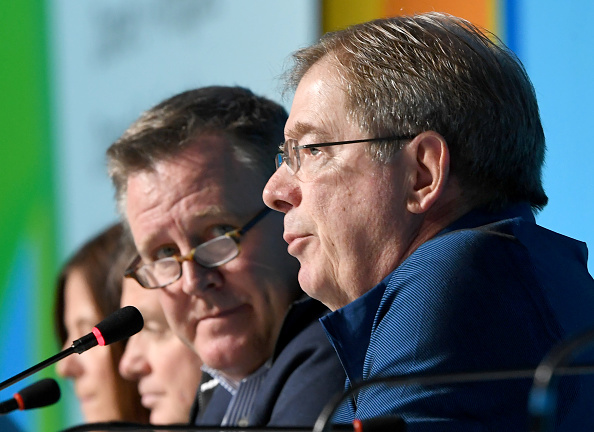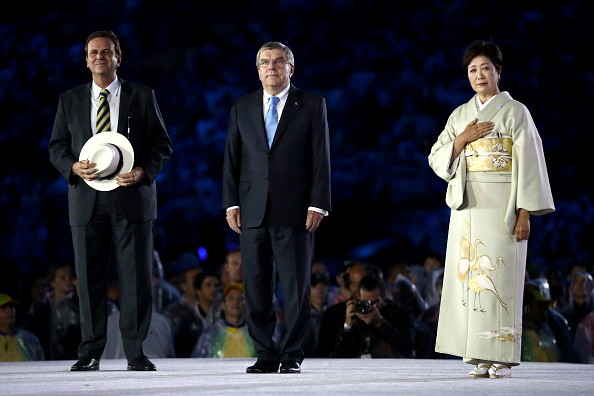Here is the classic formula. A utility owns a water pump. The pump is accidentally left on. The pump floods a house. The homeowner is out of town. Who’s responsible?
Obvious, right?
Clear, too, with a nod to first-year drudgery in law school, is the difference between a prima facie case, evidence that's enough to lay out a case, and the notion of res ipsa loquitur, Latin for "the thing speaks for itself," evidence that by itself is so obvious that it not just states a matter but, right there, ends it.
In his extensive report made public last Friday, Canadian professor Richard McLaren delivered part two of what serves as a prosecutor’s brief alleging profound irregularities in Russia's anti-doping protocols. In essence, he made a prima facie case.
You would think, however, reading the news reports that McLaren 2 by itself spoke loudly and plainly enough not just to assign but prove liability for anyone and everyone involved.
That’s just not so.
Going forward, the report seemingly answers a great many questions even as it raises significant new ones.
And, as ever is the case in regards to Russia, the pertinent question was delivered not last Friday but by Vladimir Ilyich Ulyanov -- you know him as Lenin -- in 1901:
What is to be done?
Any and all of you who want to engage in over-heated politically charged rhetoric, or threaten boycotts, or proclaim that Russia ought to be banned — less rhetoric, please, and more reasoned discussion that works toward solution.
Same: any and all of you who believe the current Russian president to be a threat to life as we know it on Planet Earth. Your therapist would tell you that what you’re doing is transferring onto the Russian sports system whatever emotion you hold for Mr. Putin. Not constructive.
There are three essential issues on the table.
One, what is to be done about the global anti-doping system?
Two, what is to be done with Russia?
Three, what is to be done about individual Russian athletes?
--
One:
The fundamental challenge confronting the system has nothing to do with the International Olympic Committee, the World Anti-Doping Agency or whether the Russians went to the Summer Games in Rio in 2016 or go to the Winter Olympics in Pyeongchang in 2018 or whoever goes to the world bobsled championship in Sochi in 2017.
It’s the same thing that made such a mess of the Rio 2016 Games themselves — money.
Simply put, there isn’t enough.
This is on both the sports movement and, critically, governments.
Often lost in all the shouting is that by design governments have been, since the late 1990s creation of a world agency designed to take the lead in dealing with doping in international sport, key players.
But in a world buffeted by war, famine and virtually every other calamity that can be conjured by the human imagination, stopping doping in sports ranks pretty low on the priority list for most governments.
The evidence is right there in black and white:
Kenya, winner of 13 medals at Rio, all in track and field, contributed $3,085 to WADA in 2016. Premise: that’s absurdly low. Problematic conclusion: where in Kenya are you going to find more money?
The United States contributed $2.05 million. That’s less than spare change when it comes to the overall U.S. federal budget, which runs to about $3 trillion.
Pick a country. Any country.
Let’s say you’re in charge of a federal government budget somewhere on our big blue ball. You suddenly find yourself with a cozy $1 million to spend. Are you better off spending it on programs that might help contain, say, HIV or malaria … or paving roads … or fixing bridges … or funding elementary schools … or throwing it at anti-doping in international sport?
Everywhere in the world but the United States — repeat, everywhere — there is a government ministry of sport.
So to rage against the machine and cry that it needs to be fixed — OK, got it.
Solutions, please.
WADA’s annual budget is $26 million. That’s something of a joke when compared against athletic department revenues at top U.S universities, which are five to seven times as much.
If you want to throw in the anti-doping programs of major international federations and make the argument that there’s really twice as much money at hand — cool. You’re still only at one-quarter of what Texas A&M or Oregon bring in, each year.
Consider: most of the international sports federations tied into the Olympics get considerable funding, if not the bulk of it, from the IOC. Which derives it from broadcast revenues. What is the chance any particular federation, confronting financial existentialism, is likely to give up its share? (Answer: zero.)
So — the logical next step is to make the anti-doping thing a priority among governments, or deal with the consequence that it’s not. Because absent dedicated government involvement, or a siphoning off of IOC broadcast revenues (as if) or a new tax on sporting events themselves, this problem is apt to remain just that.
It’s not rocket science that the two organizations that moved to ban Russia from Rio — track and field, and the International Paralympic Committee — are both led by officials from the United Kingdom. The British press has been screaming about the Russians and doping so loudly you would think all the reporters there were all staring at a lunch of polonium-laced sushi. The head of the British Olympic Assn. said Monday he would support the skeleton champion Lizzie Yarnold and the British bobsled federation if they opted to stay away from those 2017 worlds in Sochi.
History is clear that boycotts only end up hurting athletes.
Maybe a better use of time and energy would be to convince Westminster to up the UK contribution to WADA. In 2016, it was $772,326. Same as Russia.
--
Two:
It’s not a workable plan to ostracize Russia.
There may be short-term gains — see Seb Coe, head of track’s international body, the International Assn. of Athletics Federations, who earlier this month saw through a wide-ranging reform plan.
But this is a long-term play.
FIFA is not going to take the 2018 World Cup away from Russia. Russia is very likely to be at the Winter Olympics that same year. For that matter, it would not be a surprise if key sports conferences end up in the coming years back in Sochi, St. Petersburg, Kazan or Moscow.
Simply put, Russia is way too important.
Beyond which, moralizing and self-righteousness get tiresome quickly, particularly when those moralizing come from a country with its own doping history (attention, United States) and when time is likely to show that Russia is hardly the only country in the world where clever souls have been trying to find an advantage.
It’s evident that Professor McLaren has come to a published understanding of political nuance.
For one, as he said, there is no direct evidence that the Russian Olympic Committee was involved in what he called a “conspiracy.” If you are the IOC and there’s no direct evidence that ties the ROC, what are you to do? This is where the conversation must switch from sanction to reform.
Professor McLaren’s July report, meanwhile, is chock-a-block with terms such as “state directed oversight,” a “state-dictated failsafe system” and the like.
Friday’s report refers repeatedly to “institutional control.”
Big difference semantically, and you can bet it’s on purpose.
As Professor McLaren’s Friday report says, on page 31, “I would urge international sport leadership to take account of what is known and contained in the [July and Friday] reports, use the information constructively to work together and correct what is wrong.”
--
Three:
In the interests of transparency and of proving his points, Professor McLaren made public what in the acronym-heavy world of doping he refers to as the EDP, the evidence disclosure package. Here is the link.
Kudos to the professor for the documents.
The thing is, they prove everything and nothing simultaneously.
A document, to be sure, says what it says. But — this is why lawyers make the big bucks — it doesn’t speak for itself.
Whenever a document is to be used to prove a point in a legal setting, it needs to be — to use legal jargon here — “authenticated.” That means someone needs to be sworn to tell the truth and that person tells the truth (purportedly) about the context and circumstance of the document. How it came to be. How it might or might not relate to other documents. How it might or might not be accurate. And so on.
The fundamental issues with Friday’s McLaren 2 — despite the professor’s declarations to the contrary — remain fundamentally the same as McLaren 1 in July, and these issues make plain the problematic nature of sanction in favor of constructive solution.
First, as the professor says, page 30, he has painted a “detailed but not fully complete picture of the doping control process in Russia.” It's not fair to issue sanction based on incomplete evidence. That's obvious.
Moreover, to a significant extent, the evidence — all those documents and more — has yet to be tested in a formal legal setting and, crucially, subjected to cross-examination.
Without a full picture and without such a test, it goes to the core of fundamental notions of fairness and individual justice to impose blanket bans on individual athletes, particularly when the focus of Professor McLaren's two reports has been collective responsibility.
To be clear:
It may well be that the evidence turns out to be sufficient in most if not many cases to assign liability.
But that demands process, and even if process doesn’t make for screaming headlines it is essential.
In support of his prosecution-style brief, for example, Professor McLaren notes that his July report accounted for 312 positive initial screens reported negative into the WADA system; now he says the number is “more than 500.” Things just take time. A rush to judgment, as urged by many appalled or provoked by the news, is rarely constructive.
If the complaint from many in the west would be that the playing field wasn’t level because the Russians were cheating on a grand scale — OK, what about any notion of a level playing field within Russia itself? Were top-level Russian athletes knowingly part of this alleged conspiracy? Was there coercion, or worse, to get such athletes to take part? Any athletes? What about the medical or health impact on some if not all the Russians (and others) who may have been involved? Where is the empathy from athletes in the west for their counterparts?
Hand in hand go concerns about Professor McLaren’s key witness, the former lab director Dr. Grigoriy Rodchenkov.
It would seem eminently appropriate, for instance, to condemn in the strongest terms possible the use of illicit substances on five blind powerlifters, a kind of weightlifting. As Dr. Rodchenkov wrote to Alexei Velikodny of Russia’s Sports Training Center, according to a story Monday from Associated Press, “It’s a disgrace,” adding that coaches were “picking on the blind (who) can’t even see what people are giving them.”
Yet this is the kind of thing that would lead the Paralympic organization to issue a blanket ban? When the poor lifters can’t even see the stuff? They’re the ones being punished? Where is the condemnation of that kind of thinking?
Or this:
That Monday AP story comes from a Russian-speaking correspondent. He writes, "Despite repeated cases involving GW1516, a substance not considered fit for human consumption because of repeated cancer cases in animal testing, none of the emails contain any suggestions of discouraging its use.”
Professor McLaren notes, page 47, “It is unknown whether athletes knowingly or unknowingly participated in the processes involved.”
Sally Jenkins of the Washington Post wrote in a column from last Friday, and this is dead-on, "It’s not that Russia federalized cheating to create an uneven playing field — lots of government-sponsored federations have systematically doped in Olympic history. It’s not even that some innocent athletes were deprived of medals they might otherwise have won. They aren’t the real victims. The ultimate victims are the Russian athletes who were forced by their government to ingest substances against their will and without informed consent or to leave their country or to submit to blackmail by strongmen. Those aren’t sporting violations. They are human rights violations."
Friday’s McLaren 2, meanwhile, says (pages 18 and 32) that 695 Russian athletes and 19 foreign athletes can be identified as part of the manipulations to conceal potentially positive tests. Stop — 19 foreign athletes? Just for starters: if the Russians were doping others — to what purpose? To help some other country win?
As for Dr. Rodchenkov:
Professor McLaren notes, page 63, that in 2011 Dr. Rodchenkov endured what in the report is called an “illness.” Russian media reports suggest it was much more, and that Dr. Rodchenkov’s mental state was at issue. If it was then — what about during the course of the alleged “conspiracy,” 2011 to 2015? And now?
On page 12, Professor McLaren avows that one of the reasons to believe Dr. Rodchenkov is telling the truth is “the possibility of deportation from the United States should he be shown to have been untruthful” in speaking with the professor.
You can make just the opposite argument. If Dr. Rodchenkov wants to stay in the United States, wouldn’t he be inclined to say anything to save his backside?
Further, about that deportation thing: it’s straightforward that it wouldn’t be sports authorities in the United States but, rather, the U.S. government that would take any such action. The government controls customs, entry and visa requirements.
Maybe it seems far-fetched that the U.S. government would somehow be involved in all this.
Then again, consider — if you wrote a movie script about what Professor McLaren reported has happened in Russia, could you make even a prima facie case for a single reputable Hollywood studio to believe it was anything but straight-out fiction?



